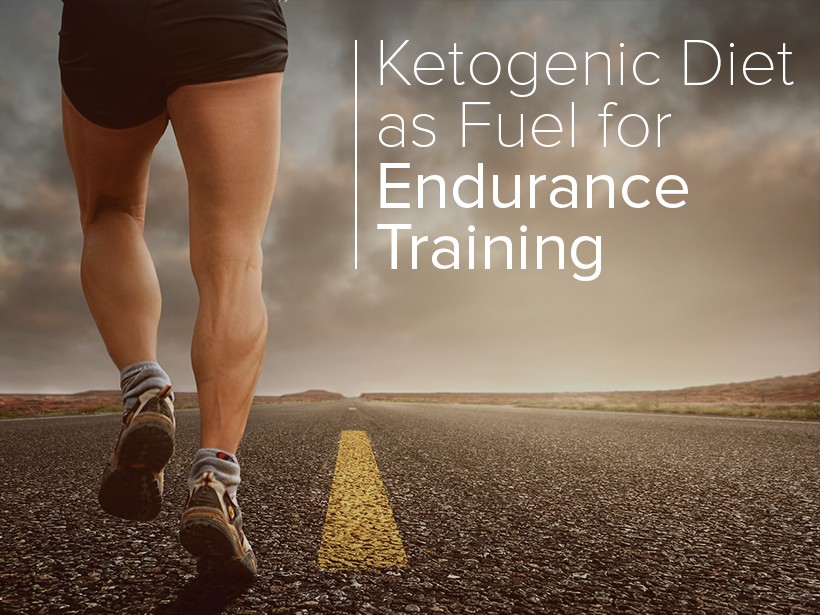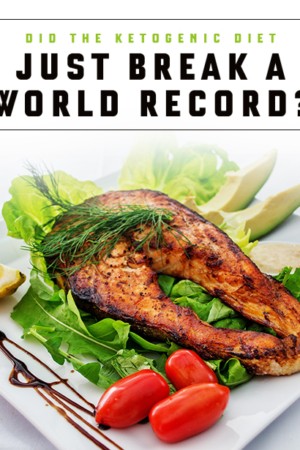What if stockpiling carbohydrates wasn’t the best answer to fueling your body? What if you could find a fuel that didn’t deplete so rapidly and therefore allowed you to push your body longer and harder than you ever thought possible? The Ketogenic Diet is the answer to this equation.
Why Consider the Ketogenic Diet?
Most endurance athletes have an in-depth knowledge of how their bodies use carbohydrates throughout the training process. With years of hard training and self-study, these athletes have found the need to continually introduce more and more carbohydrates to replenish the body’s store of this fuel so they can continue to fight off fatigue.
Using fat for fuel isn’t something new. Research has been around for years showing the benefit of fat utilization during exercise and how it compares to carbohydrate utilization. In a 2001 study published in The Journal of Physiology1, this exact concept was tested. Researchers hypothesized that fat oxidation was greater during exercise when athletes had high-fat diets. The results of their study demonstrated an increased use of fat to fuel exercise when participants had fat-rich diets. This allowed for longer periods of exertion and less fatigue for the participants as compared to their counterparts who maintained a traditional carbohydrate-rich diet.
Getting Started
So how can you use this information to transition the way your body uses fat? Switching to a Ketogenic Diet that is 60-70% from healthy fats and 20-30% protein will leave you with less than 10% of your diet for carbohydrates. It can take up to five weeks to transition to become keto-adapted. There are no cheat meals, not days of high carbohydrate consumption if you want to fully transition your body to using fat instead of carbohydrates there no shortcuts. Your transition can be shortened only by maintaining a strict diet.
Benefits for You
The benefits of changing over to using fat to fuel your endurance training are more than just better performance. Since our bodies have extra stores of fat that far exceed our stores of glycogen, you can push your workouts longer without the need for boosts or supplement breaks. With a dedication to your ketogenic diet, your body will adjust to using its own fat to fuel your workouts which allows you to concentrate on training without the need to worry about high-carb or sugar bursts to provide added energy.
Ketogenic diets also help to reduce inflammation which most athletes, especially those who are endurance training, will struggle with. Clarity of mind is important to your training as well, so your transition to a high-fat diet can reduce blood sugar spikes and help maintain the sustained fuel your brain relies on.
Recovering from endurance training requires your body to work at an optimal level and according to six-time Ironman Champion Dave Scott2, using a low carbohydrate, high-fat diet you reduce the metabolic strain on your system. Mr. Scott has a vast history of using a ketogenic diet in his training and reports a reduction in inflammation, insulin spikes, gastrointestinal stress, and discomfort. Using a ketogenic diet as fuel for your endurance training might be a new idea for you and can be scary if you don’t fully understand the benefits. Take your time and read up on the diet, test out the benefits for yourself and your training and you will see that the benefits are impossible to ignore.
NUTRITIONAL DISCLAIMER
The content on this website should not be taken as medical advice and you should ALWAYS consult with your doctor before starting any diet or exercise program. We provide nutritional data for our recipes as a courtesy to our readers. We use Total Keto Diet app software to calculate the nutrition and we remove fiber and sugar alcohols, like erythritol, from the total carbohydrate count to get to the net carb count, as they do not affect your blood glucose levels. You should independently calculate nutritional information on your own and not rely on our data. The website or content herein is not intended to cure, prevent, diagnose or treat any disease. This website shall not be liable for adverse reactions or any other outcome resulting from the use of recipes or recommendations on the Website or actions you take as a result. Any action you take is strictly at your own risk.
- The Brain’s Role in Weight Loss - March 11, 2019
- Making Fat Loss EPOC - March 8, 2019
- Overcoming Plateaus - March 6, 2019




